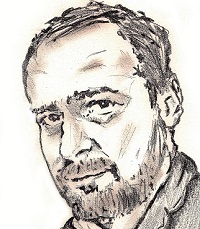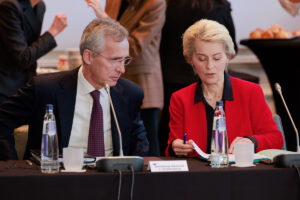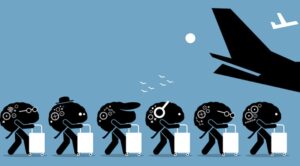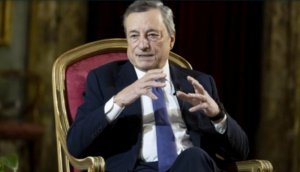 Covid is a curse which helps the Romanian economy: it opens no new roads for us but closes the old ones and forces us to build others, in the (hopefully) right direction.
Covid is a curse which helps the Romanian economy: it opens no new roads for us but closes the old ones and forces us to build others, in the (hopefully) right direction.
However, as the subject of resetting the local and world economy will be amply treated by many books, doctoral theses, and MBAs, and will certainly produce a few Nobel laureates, we are not going to dwell on this issue.
We will, however, write about a similarly important issue, worth of a few MBAs, doctorates and Nobel prizes: the „final recipient” of all governing acts – the man, the citizen inside the man, and the society inside the citizen inside the man.
As in any other crisis, the fine lines we draw to depict for ourselves the presumption of a problem suddenly thicken once more – they now scratch bold lines to draw what we refused to see before. And the lines that thicken the silhouette of Man in a crisis like the one generated by Covid make manifest three shadows. Let us study them a bit.
The first is the nationalist-tribalist silhouette of the presumed „European” citizen. We cannot see it by looking around: it does exist though, in the decisions taken in Brussels by political leaders paying attention to their electorates; we see it in the closure of the frontiers between Schengen states, that we thought gone forever; we see them in the rebirth of the suspicion against everything „foreign”, which became a synonym for „contagious”.
The worry manifested by the leaders of the people in front of this shadow is pure hypocrisy: their policies never pursued the goal of enriching the life of the citizen – and even less the life of the person that citizen inhabits. They all pursued the evolution of „societies”, of „economies” – that is, of abstract entities from which, at the time when the calculations were made, they „evacuated” the citizen, the human being and their nature. Look at the principles of the Bologna education treaty and you will be able to see in their centre the „slave” defined by professional perfection, and not the Free Man, taking a leisurely walk through the labyrinth of the values of his free society.
This is an historical error, as never was it ignored in known history.
The second silhouette is that of Man in the Covid crisis, isolated through „social distancing” (a psychologic and anthropologic aberration), as if in an experiment; the scared man; the one that the dozens of years of „education”, of unlimited and instantaneous access to information and experiences accumulated in thousands of years, of prosperity greater than at any point of human history, did not manage to reset his brain’s central amygdala and let his reaction to fear achieve coherence with the education based on the inhibition of primitive behaviour and on social pride..
For the sceptic, let them look at the lemming-like invasion of supermarkets spurred by irrational buying decisions made by people with a social status that supposes rationality; at the fist-fights for toilet paper among MBA and PhD students; at the consumption without critical thinking of clichés and stereotypes about Covid by hordes of post-graduates. As for other people, all comments are superfluous.
For comparison, it suffices to look up in Dickens’ „A Christmas Carol” the chapter about the poor children who only take a thin slice of cake as they would have been ashamed to ask for a larger one in those difficult circumstances. Or, to come upon it from a different direction, read again Golding’s „Lord of the Flies”.
The test of the fear induced not only in the midst of our informational society, but also despite the constant flux of elements and information that can help configure rationally human behaviour, can be studied as an experiment of unseen proportions.
But who, out of the leaders of the people and the systems they lean on, truly treats society from the level of the individual – presumed free, formed as a strong, autonomous entity, with values that brought that individual in the most beautiful and balanced of societies, and that brought about social misfortunes one after the other each time they were ignored?
And, finally, the silhouette of the „Man of the (post-Covid) future”. The talk about the future has become a pure diversion: there’s a manifest difference between having ready an indispensable plan for the future, and having in mind a pre-drawn society of the future, from which one excludes the individuals that, at the most, one might choose to view as pure statistical mass. The world is full of prophets ranting about the future, of company strategists, of visionaries with local or global solutions. Instead, Europe needs people that, living their personal lives in the present, can understand the now in order to pursue the future with the entire force of their creative personality – not mired in the statistical wave that presses them down into a fearful society.
For thousands of years, human society was pushed forward by the fight between the good and the better. While Man progressed by always seeking what is „better”, the Covid crisis pushes the three silhouettes described above upon a single individual, whose only wish is to be left alone in the serenity of his or her COMFORT. And this comfort is no longer a right, but rather the price received in exchange for his – or her – own liberty. A market-based price, the value of which will change for a given people and society.
And History – as Julien Benda would say – will smile at the thought that both Socrates and Christ died for this very individual.









